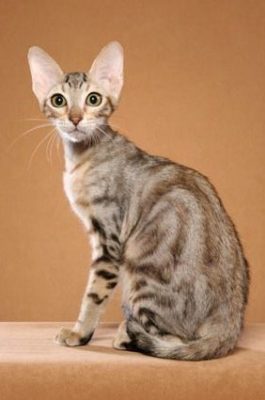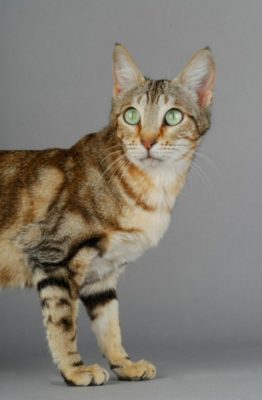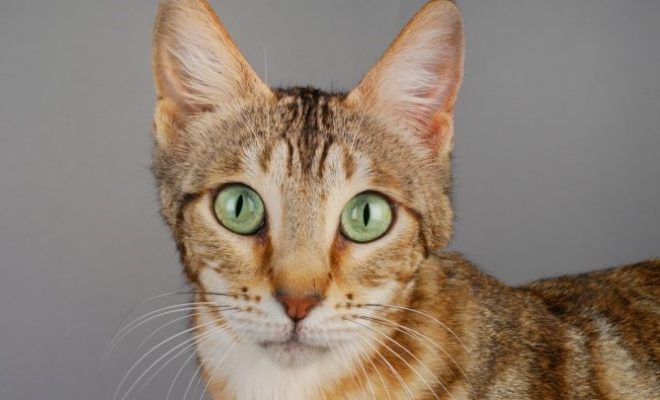Sokoke
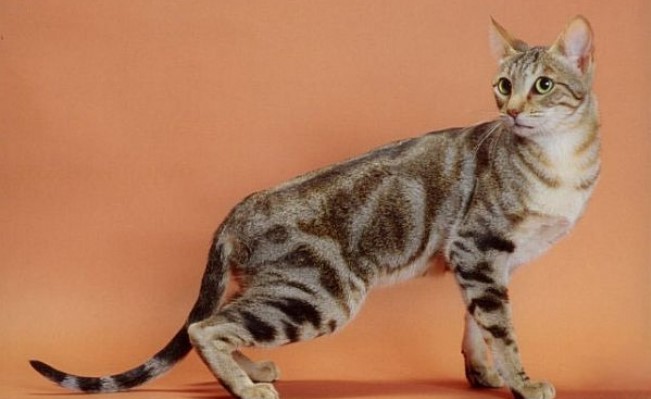
Sokoke are sociable and friendly; they make great family companions. Kenya forest cats are cheerful and very active; they like to play and jump a lot. They can get along well with other pets, but only birds and rodents won’t get along, as Sokoke takes them for dinner. Repeated absence of the master takes quietly, without unnecessary tantrums.
Table of Contents
Breed Information
| Origin | Kenya |
| Size | Males 35-38 cm Females 32-35 cm |
| Weight | Males 4-6 kg Females 3-4.5 kg |
| Fur Type | Short-haired |
| Color | Marble tabby |
| Lifestyle | Outdoors, indoors |
| Lifespan | 13-16 years |
| FIFe Classification | Category III: “Short-haired and Somali” Breed designation – SOK |
| WCF Classification | – |
| TICA Classification | SO |
| Group | Short-haired cats, rare cats |
| Price | $500-4000 |
Breed Photos
Origin History
The Sokoke cat breed came to us straight from the jungles of Africa. The Sokoke is one of the rarest cats in the world. No more than a hundred cats can be found on the planet. The Sokoke is an indigenous breed that lives in the Arabuko-Sokoke forest in Kenya. These cats are also called African cats because of the continent in which they were discovered. The people who first discovered and domesticated the Sokoke come from the Jarama tribe. They called these cats “kotzonzo”, which means “similar to tree bark” in Swahili.
The origin of the Sokoke remains a mystery. Recent DNA tests have put the Sokoke on a par with breeds of Asian origin – the Arabian wild cat, the Lamu Island cat, and the street cat of coastal Kenya. The breed was officially registered in 1993.
The area of the Arabuko-Sokoke rainforest is steadily declining, as is the population of African cats itself. The Sokoke is practically extinct in the wild, there are very few of them in captivity, and the gene pool has all but disappeared from the face of the earth.
Appearance
The Sokoke looks like a wild version of the domestic striped cat. It is a small but muscular, agile, and athletically built African cat. Like wild cats, the Sokoke has long, muscular hind legs; no one can jump like them. African cats are very fast, reaching speeds of up to 75 km/h. They have large, upward pointing ears, wide at the base, with slightly rounded tips. These ears can turn 180 degrees, which allows the cat to catch the slightest noise. The African cat is endowed by nature with a gorgeous coat. Another difference from the domestic cat is the color and composition of the coat of the Sokoke. It is tough to the touch and not silky at all.
Character
Sokoke are sociable and friendly; they make great family companions. Kenya forest cats are cheerful and very active; they like to play and jump a lot. They can get along well with other pets, but only birds and rodents won’t get along, as Sokoke takes them for dinner. Repeated absence of the master takes quietly, without unnecessary tantrums. They don’t beg for affection, as they are proud and independent. But this does not prevent them from following family members on their heels and accepting a gift of affection.
Care
Since the Sokoke comes from Kenya’s hot and humid coast, they lack undercoats and are very sensitive to the cold. They are not intended for living in countries with cold climates. African cats are very fond of climbing. If you can’t often take a cat out in the garden, get a special cat house that goes all the way to the ceiling!
Sokokes do not require any special care. All they need is a weekly combing with a special rubber glove. Sokoke loves water very much; they can safely bathe even with you in the bathtub. Do not forget to close the toilet’s lid; otherwise, the African cat may bathe in inappropriate places.
Education
The Kenyan Forest Cat is very smart and intelligent. No problem remembering the house rules, knowing where to sharpen her claws, and going to the litter box. Ready to obey simple commands, can be trained, but not without problems. Use multi-level complexes with an African cat, where the animal can jump to its heart’s content. Be sure to diversify the cat’s training with numerous toys; they love everything that creates interesting sounds.
Common Diseases
Like most natural breeds, the sockeye has no visible health problems. But no one can keep woodland cats safe from such ailments as paw pad cuts, infections, viruses, parasites, etc.
Representatives of this breed are prone to mental disorders. Sokoke is easily excitable and is prone to hysteria and neurosis, and meningitis and seizures can also occur in cats of this breed. Nervous disorders are most likely hereditary, so when buying a kitten, pay attention to his mother’s behavior.
Nutrition
It is desirable to choose a healthy and varied diet. The diet should be balanced, and it is advisable not to forget about taurine and vitamin E supplements. 80% of the food should be lean meat (veal, beef, chicken, turkey). Also, the cat may be offered raw chicken eggs, cereal, sour-milk products, boneless saltwater fish, vegetables, herbs, and cut grass. Leftovers from the table must not be fed to the cat, especially the fried, smoked, and salted food is prohibited.
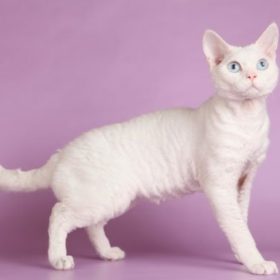 German Rex
German Rex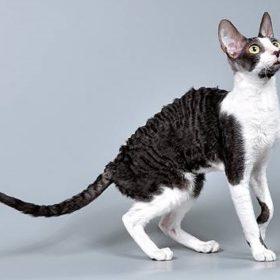 Oregon Rex
Oregon Rex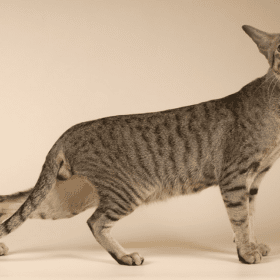 Oriental Shorthair
Oriental Shorthair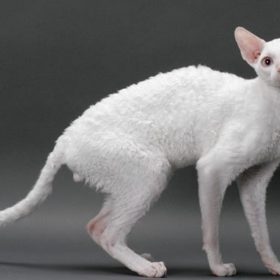 Cornish Rex
Cornish Rex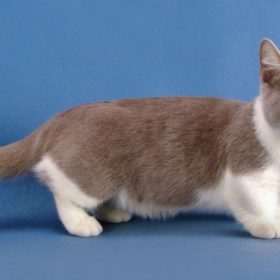 Munchkin Shorthair
Munchkin Shorthair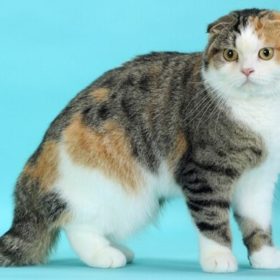 Scottish Fold
Scottish Fold